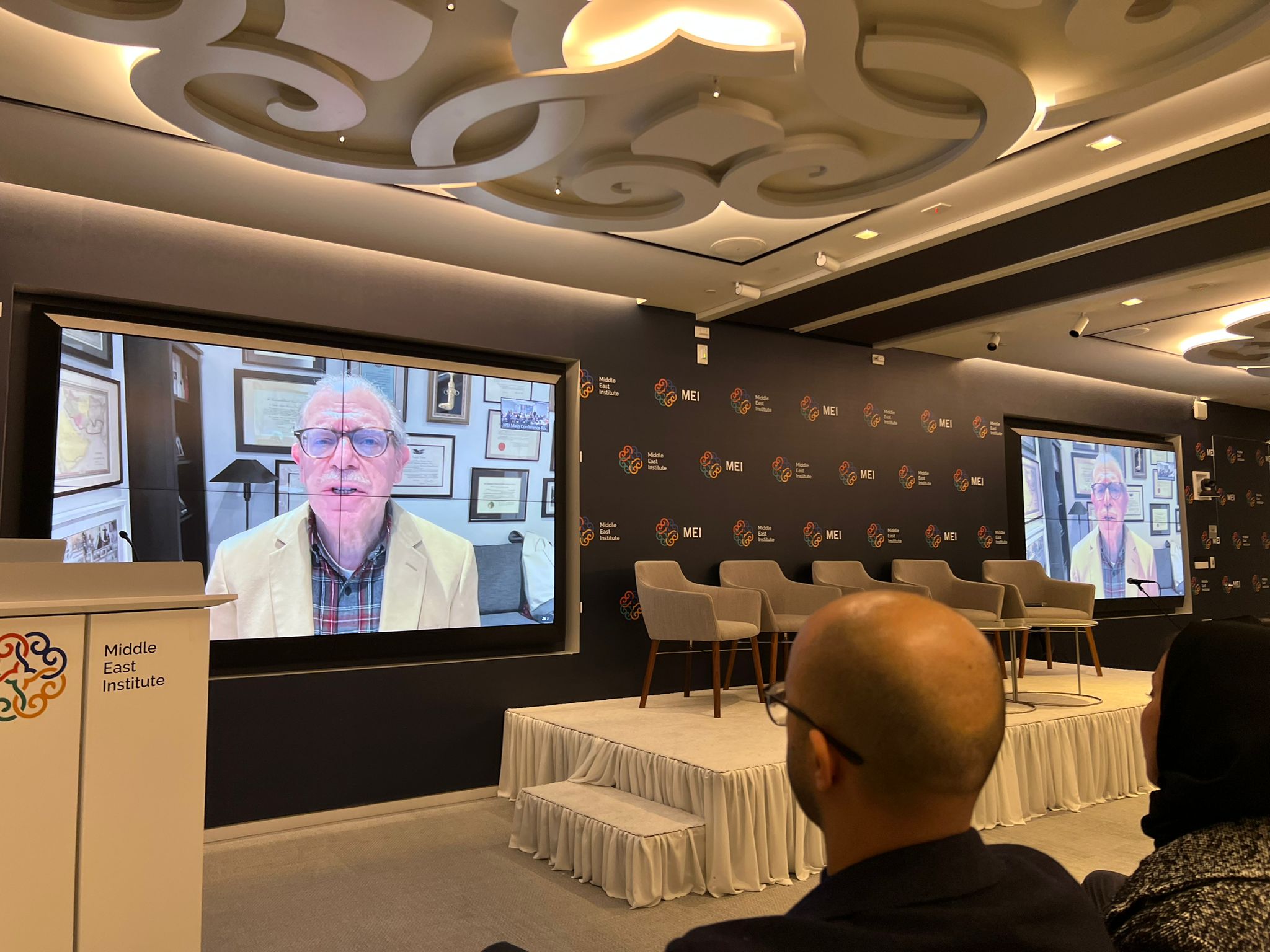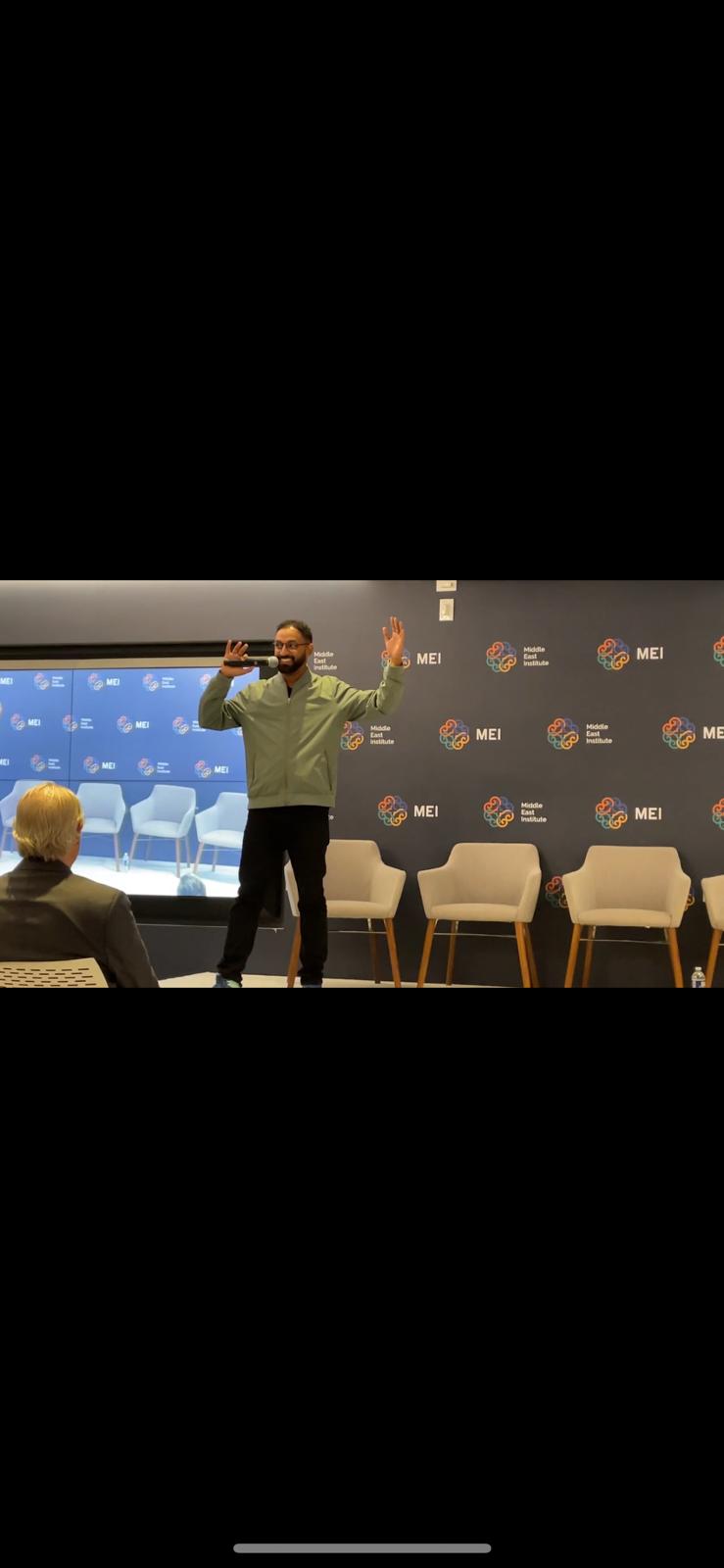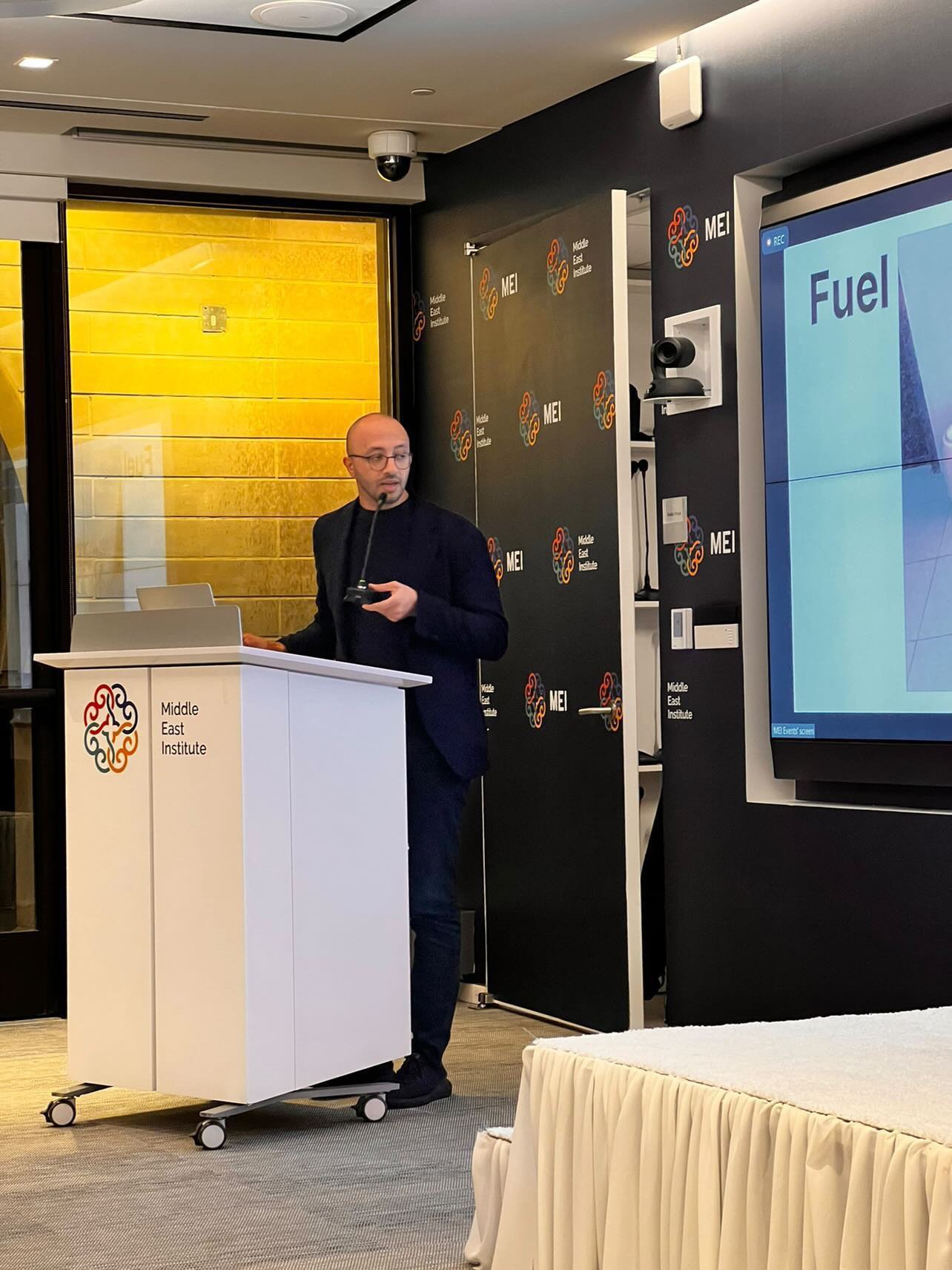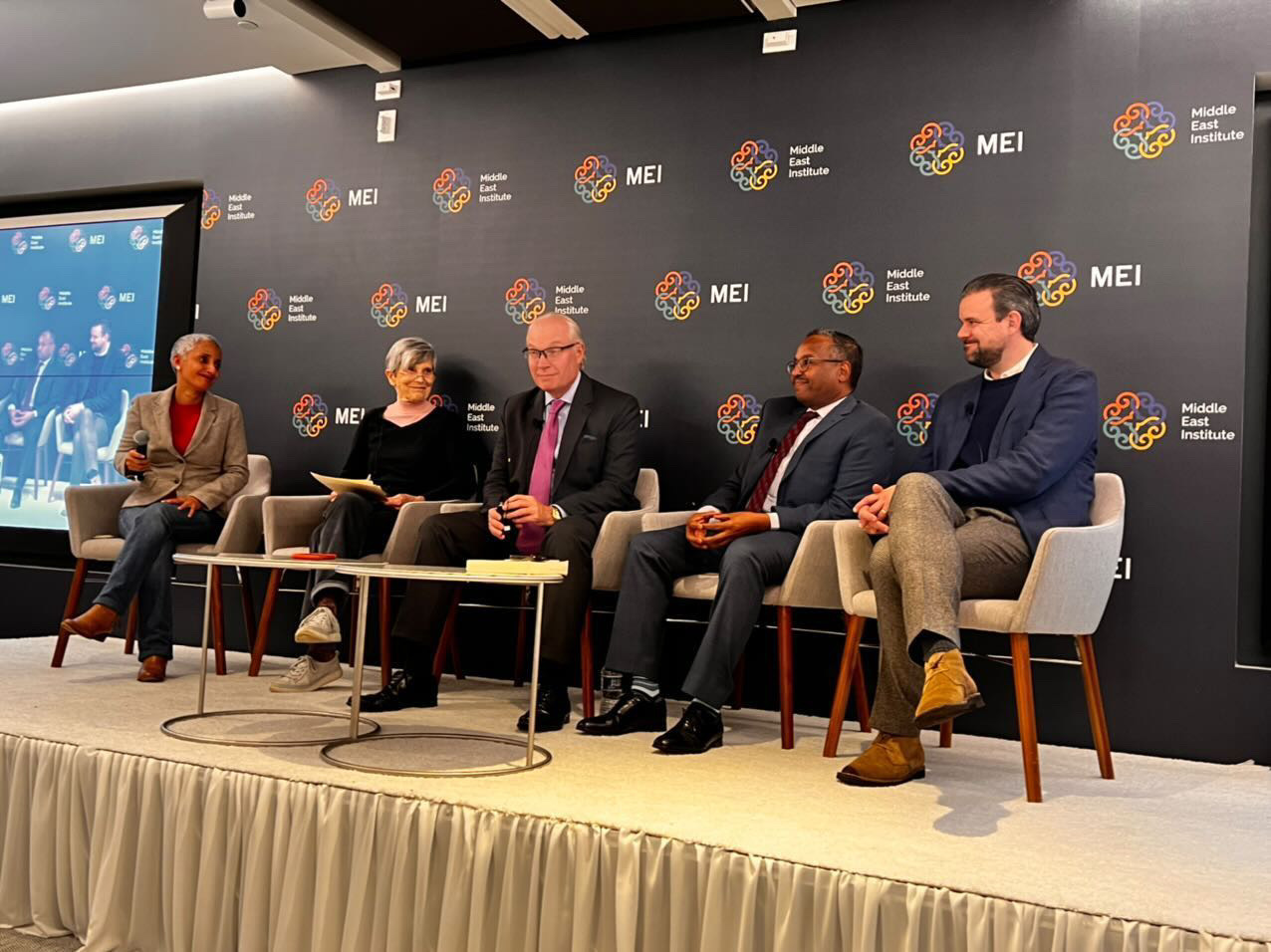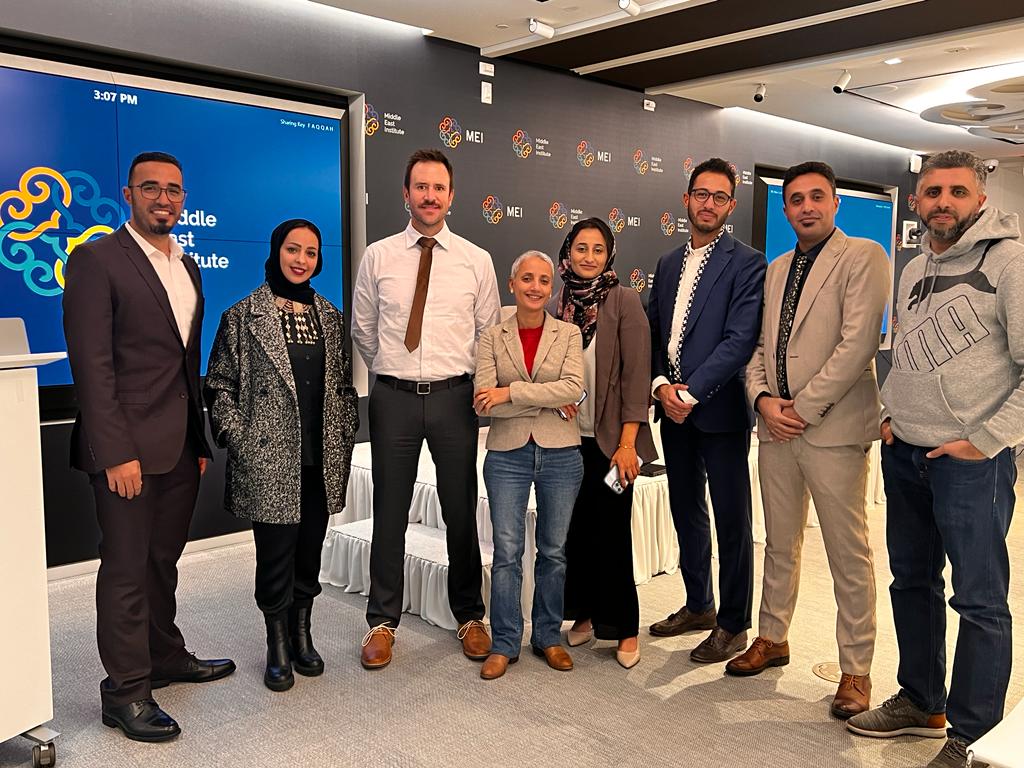
On November 15, Yemen Corner launched its inaugural cultural event before a crowd of more than 100 people at the Middle East Institute in Washington D.C. The program reflected our core mission to go beyond the grim headlines that form most people’s understanding of Yemen and explore its vibrance and diversity through the lenses of art and culture.
Yemen Corner director and communications consultant Alkhatab al-Rawhani kicked off the evening with an overview of who we are and what we do. In a nutshell, Yemen Corner is an English-language resource hub run by a group of leading Yemeni researchers and journalists that aims to break the cycle of illiteracy on Yemen by providing primers on its history, society, culture, economy, politics and conflict. Alkhatab unveiled Yemen Corner’s website, which includes a syllabus of books, reports, articles and websites, as well as a database of Yemeni scholars, researchers, artists and organizations.
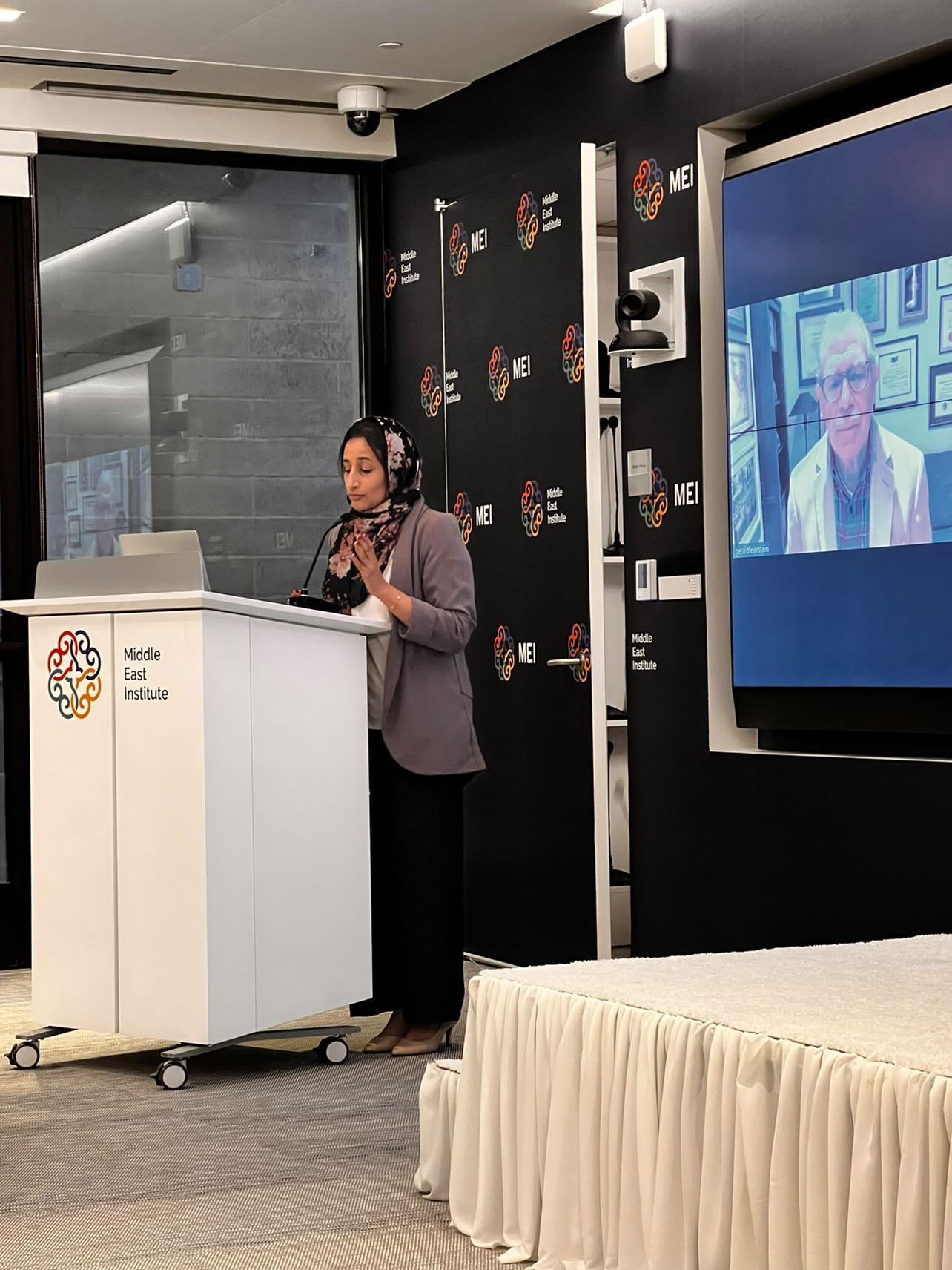
YC team member and scholar Nadwa Dawsari moderated a distinguished panel of non-Yemeni Yemen lovers who shared their personal experiences, impressions and memories about the country and its people.
Former US Ambassador to Yemen Gerald Feierstein, joining us via video, recounted US Secretary of State Hillary Clinton’s hesitancy to hold a “tounterview” (town hall-like interview) in Sana’a in 2010, assuming that Yemenis might not be interested in a lively debate on the issues of the day. After Gerald insisted that she would be surprised by Yemenis’ eagerness to debate any topic that came up, Clinton admitted to him after the event that it was the best tounterview she had ever had overseas.
US special envoy to Yemen Tim Lenderking spoke about the need to build on the recently-expired truce that created a semblance of stability in the country. Since February 2021, he has been shuttling around Yemen and the Middle East talking to all of the warring parties and their backers in an attempt to lay the groundwork for a political solution to the war.
Dr. Robin Madrid, former resident director of the National Democratic Institute said one of her first memories of Yemen was witnessing one of Sheikh Abdullah Al-Ahmar’s sons pull up to the Taj-Sheba hotel in a motorcade of armed guards. As one of the guards was crawling out of an SUV, he dropped his Kalishnakov which fired off a few bullets including into the SUV’s tire. The sheikh’s son laughed at the guard and strolled into the hotel.
Indeed, Yemen has the highest-per capita gun ownership in the world. When you see every other civilian on the street walking around with an AK47 slung over his shoulder, it’s easy to assume that it's a dangerous place. In reality, a Yemeni wearing a gun (or the traditional jambiyah (dagger) around one’s waist) can be thought of more of an expression of tribal culture and in some ways a fashion accessory than a dangerous weapon.
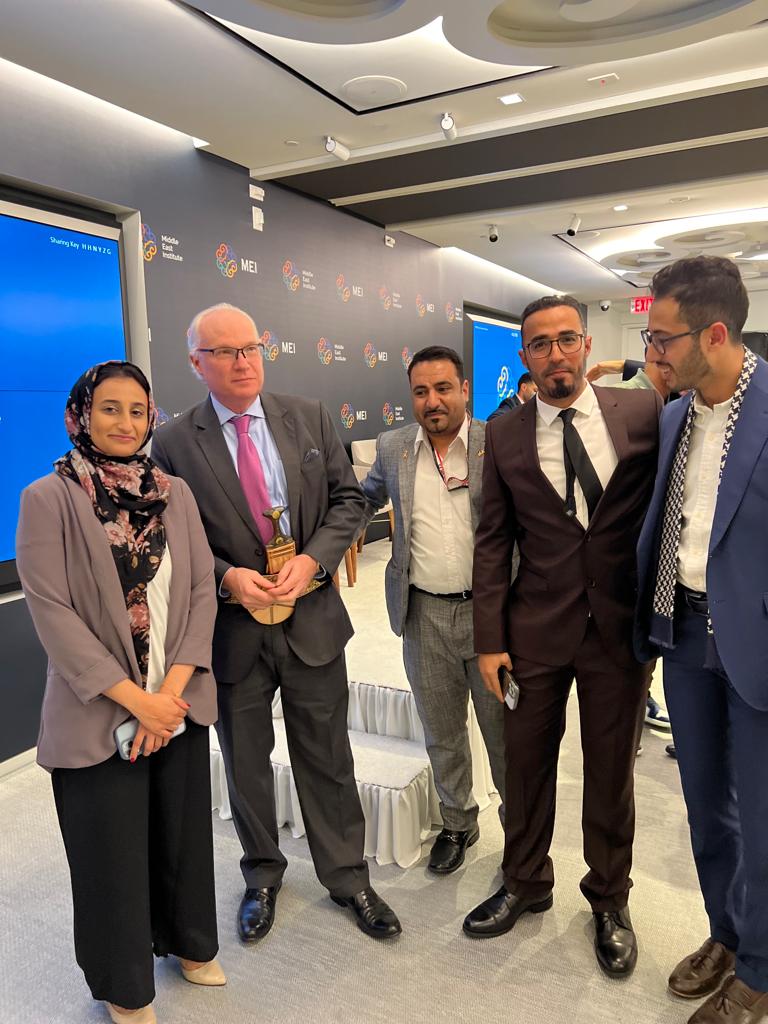
Photo of Tim Lenderking wearing a jambiyah.
Former UN High Commissioner for Human Rights (OHCHR) representative to Yemen, Al-Obaid Ahmed Al-Obaid, said he realized the extent to which Yemen defies stereotypes when one of the most armed countries in the world didn’t resort to arms in the peaceful uprisings of 2011 that led to the resignation of 33-year President Ali Abdullah Saleh. It wasn’t until mid-2015, following the collapse of a years-long political transition process and the exhaustion of all diplomatic means to counter a military coup by the Houthis and former President Saleh, that country descended into the current war.
Foreign intellectuals have done a terrible job of perpetuating certain myths about Yemen, Al-Obaid said, in part by refusing to understand the country on its own terms and reading publications by Yemeni intellectuals like Abdullah Al-Baradouni, a blind poet whose books include Republican Yemen.
Ibrahim Saleh, an entrepreneur, talked about how he launched a food delivery startup, Wagbat, in the heart of the civil war. Despite fuel shortages, slow Internet, and a cash-based economy, the startup now has more than 150,000 users in Sana’a and has been emulated by about 50 competitors who are innovating despite all the odds.
Peter Salisbury said Yemen was one of the best places in the world to work as a journalist or researcher when he first arrived because if you had enough patience you could meet anyone in the halls of power. “Yemen assimilates you.” Indeed, Peter honed the art of the qat chew after many years of practice and many lunches of fahsah and saltah.

The crowd also enjoyed stand-up comedy presented by Yemeni-American comedian Ali Sultan, followed by traditional dances and a live Oud performance and songs representing a variety of Yemeni genres and melodies by Yemeni singer Hussam Alaya.
